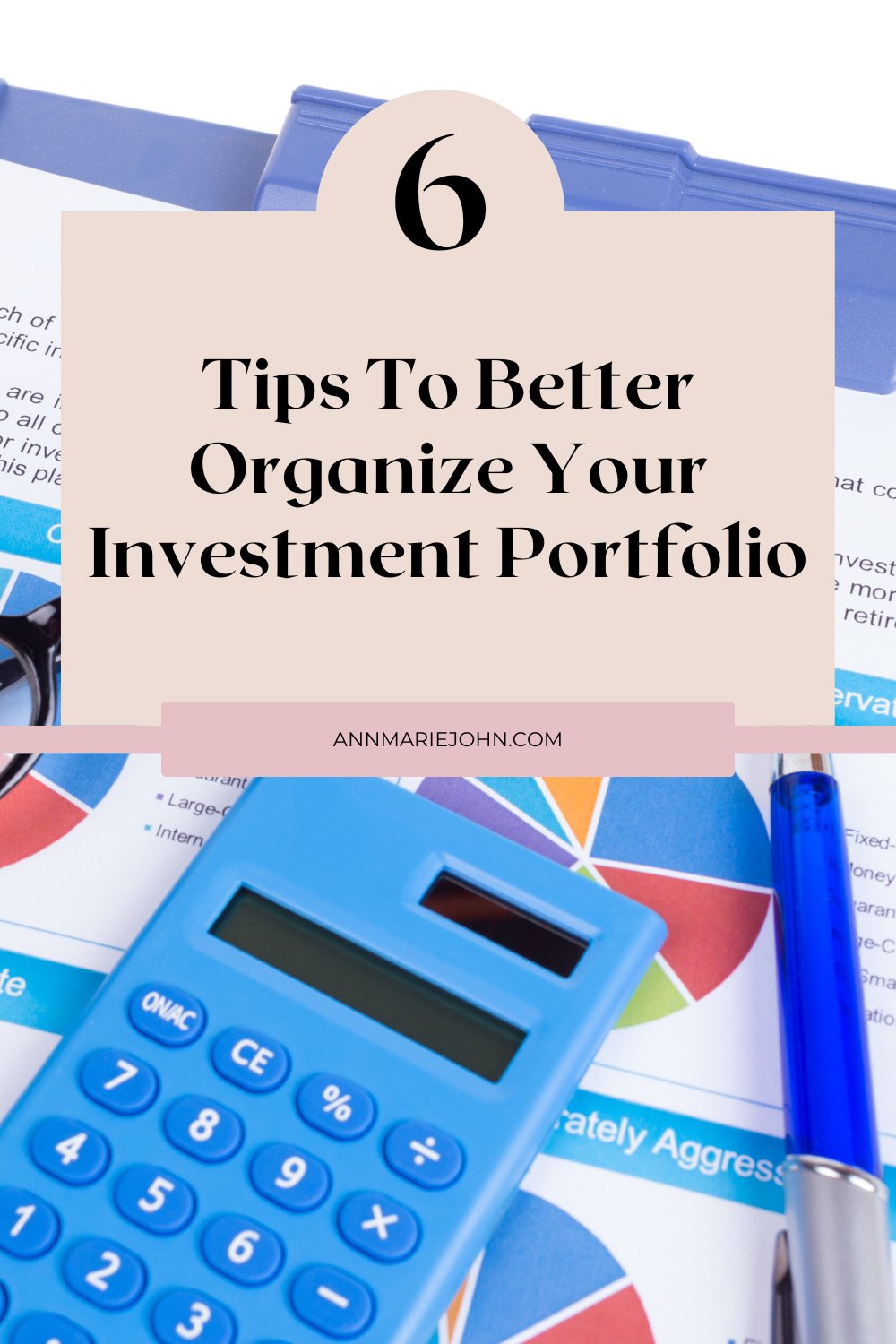Investing your money can be an intimidating process, especially when you’re just starting. There are many different investment vehicles to consider, and it’s important to have a well-structured plan in place before you start investing. A great way to get started is by creating an organized portfolio that will help you maximize your returns while minimizing your risk.

Creating a portfolio isn’t as complicated as it may seem at first glance – all it takes is some research and planning on your part.
In this article, we’ll provide six tips that will help you better organize your investment portfolio so you can make the most of every dollar invested. We’ll cover topics such as diversification, asset allocation, rebalancing portfolios over time, and more! By following these simple steps, you’ll be able to create an effective portfolio that maximizes profits while reducing the risks associated with investing. So let’s get started!

Diversify Your Assets
It’s important to diversify your portfolio among different asset classes. This means that you should include both stocks, bonds, and cash in your portfolio so that if one asset class performs poorly, the others can help cushion the blow. Don’t put all of your eggs in one basket – spreading them out across a variety of assets will help reduce the risk associated with investing. When you diversify, you should also consider the different types of investments within each asset class, such as large-cap stocks, small-cap stocks, and international stocks. This way, you’ll be able to spread out your risk even further and maximize your returns.
Allocate Your Assets Appropriately
Once you’ve diversified your assets, it’s important to allocate them appropriately according to your individual goals. This means that if you plan on investing for the long term, you should focus more heavily on stocks and less on bonds. On the other hand, if you’re planning to retire soon, it might be wise to shift some of your portfolio weight toward fixed-income investments such as gold, which can provide a steady stream of income during retirement. And if you stay up to date with gold pricing and gold investing news, you might also be able to take advantage of price fluctuations for potentially higher gains. Allocating your assets carefully will help ensure that your portfolio is balanced and in line with your personal goals.
Rebalance Your Portfolio Periodically
As the market changes, so should your portfolio. It’s important to keep an eye on your investments and make sure that you’re rebalancing your assets according to predetermined percentages. This will help ensure that you are investing in accordance with your goals and that any risks associated with over-investing in one particular asset class are minimized. The best way to do this is to check your portfolio regularly and either buy or sell stocks to stay within your desired allocation percentages.
Invest Regularly
Creating an investing habit is one of the best ways to ensure you’re making the most of your investments. By investing regularly, whether it’s monthly, quarterly, or annually, you’ll have a better chance of realizing higher returns over time as compared to trying to time the market. This means that if there’s a dip in the market, and you invest during that period, you could end up with more shares of an asset for a lower price than if you had waited until prices rose again. Additionally, by investing regularly, you’ll be able to better manage your risk by steadily diversifying your portfolio.
Consider Low-Cost Options
High fees can eat into returns and reduce the overall profitability of an investment. When choosing investments, it’s important to look for funds with low expense ratios and minimal trading fees, as these will help keep more of your money in your pocket. Exchange Traded Funds (ETFs) are a great way to get access to a wide range of stocks, bonds, commodities, and other asset classes at a lower cost than buying individual shares or mutual funds. Additionally, ETFs are typically more tax efficient than traditional mutual funds, so they can be a great option for long-term investors who want to keep their taxes low.
Have A Long-Term Outlook
Investing is a long-term game, so it’s important to stay focused on the bigger picture rather than trying to time the market or speculate on short-term gains. Having realistic expectations and staying disciplined when investing can help ensure that you can achieve your investment goals. Additionally, setting aside some cash for emergency funds will provide safety and peace of mind in case of an unexpected financial setback. By following these steps, you can become a smarter investor and maximize your returns over the long run. It may take some time and effort, but it will be worth it in the end!
In Conclusion
Investing is not something to be taken lightly. It requires research, planning, and discipline to make the most of your investments. By having realistic expectations, setting aside cash for emergency funds, and understanding the various asset classes available to you, you’ll have a much better chance of achieving your financial goals over time. If you take these steps seriously, then you should be able to enjoy the rewards that come with being a smart investor!
